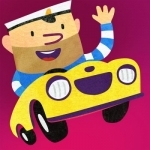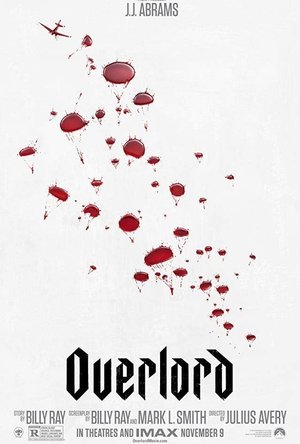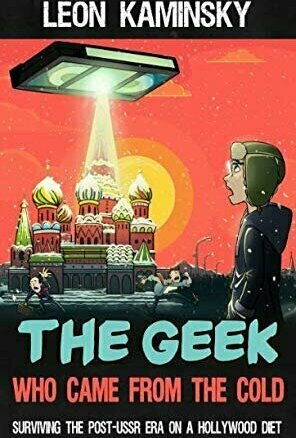
Einstein™ Brain Trainer HD
Games and Education
App
TOP PAID IPAD GAME: #1 in Italy, Spain, Netherlands, Switzerland, Austria, Belgium,... #2 in...

Get The Bet - Football betting predictive analysis, a Quantitative Approach. Deep Learning at its best
Sports and Entertainment
App
Welcome to the new era of SPORTS BETTING: Get unlimited Match Predictions for over 200 international...

Fiete Cars
Education and Games
App
In Fiete Cars the children are the master builders. In this app kids can create their own car game....

Fiete Puzzle - Kids Games with Animals
Education and Games
App
The game Fiete Puzzle lets children discover cute animated animals in beautiful picture book...

Sleep Cycle alarm clock
Health & Fitness and Utilities
App
Waking up made easy. An intelligent alarm clock that analyzes your sleep and wakes you in the...
Gareth von Kallenbach (980 KP) rated Overlord (2018) in Movies
Jul 2, 2019
Overlord focuses on a small unit tasked to take out a radio tower atop a church in a small village in France. The unit led by Corporal Ford (Wyatt Russell) and comprised of fresh out of paratrooper training Privates Boyce (Jovan Adepo), Rosenfeld (Dominic Applewhite) and Tibbet (John Magaro) are the only survivors of the doomed mission, but understand that if they do not complete it, then the allied invasion will be without crucial air support. During their trek to the church they meet a young French woman from the village named Chloe (Mathilde Ollivier) who offers to accompany them and assist in taking out the radio tower.
When the ragtag team reach the village, it immediately becomes apparent that everything is not as it should be. They go to Chloe’s house to formulate their plan and are greeted by howling and grunting coming from a closed door down the hallway. Chloe states that her aunt also lives in the house and is very “sick” after being taken to the church by a German soldier. At the same time, through a series of unfortunate events, Private Boyce discovers a brutal laboratory where other villagers are also being made “sick”.
For those who have seen the preview of Overlord and expect it to be war-based horror movie may be a little disappointed. While there certainly are horrific events, and plenty of scenes fighting the undead, Overlord is much more about the atrocities that the Nazi regime inflicted on innocents in an effort to purse the 1000-year-old Reich. J.J. Abrams spins a tale about how a small group of dedicated soldiers can pull out the impossible, even when there are hordes of Nazi soldiers and undead monsters standing in their way and does this in a spectacular and very believable way. The movie seems far more realistic than it should considering we are talking about zombie soldiers, but the events unfold as if they could actually happen. The movie is less The Walking Dead and more Saving Private Ryan, focusing not so much on the undead creatures themselves, but more the experimentation and mad-scientist efforts to create the ultimate super soldier. The story was outstanding and how they depicted everything from the soldiers to the zombies was top notch.
The movie is beautifully shot, standing tall next to other war epics such as Saving Private Ryan or Dunkirk. Even though the main plot of the film isn’t the invasion itself, it goes to astonishing detail to show how massive the invasion truly was. The opening scene is both epic and terrifying and the horrors of war are explored throughout. The acting was also superb, leading you to immediately care about the team and root for their success in the mission.
If it is not already clear, I absolutely loved this movie! They did a masterful job of blending the war/horror genre in such a way, that it never overly feels like one versus the other. It’s an action packed, edge of your seat thriller, with just enough jump scares included to remind you that it is billed as a horror movie. Overlord is a very unique take on an unfortunate time in history and it is one of the best movies I’ve seen in 2018.
Leon is a young boy growing up in Russia at the end of the 1900s. He has a nervous problem (possibly anxiety) and has a hard time at school and with other people in general. Leon quickly falls in love with movies, specifically those from Hollywood after seeing them for the first time. Like so many other people who are not exactly social for one reason or another, he trades social interaction for watching films. His love for movies over the years borders on the edge of obsession as he knows not only actors and directors but also the Russian’s who voice over the tapes to translate them. His daily and weekly schedule revolves around what movies are being played on TV or at the theaters.
He takes readers through the difficulty of obtaining some of the popular movies that can be found just about anywhere here in the United States. This difficulty is not only because of how much Russia censored movies from just about anywhere but because the titles are often changed as well. Leon shares his excitement and the challenges he faced to get his first VCR play and to transport his VHS collection when his family moved. He even talks about when owning a VCR was illegal in Russia and when people would give anything to have one, including offering to trade a boat for a VCR.
What I liked best was that the informative quality of the book was wonderful and the author clearly did his research (I even wondered at times if the book was based on the author’s own childhood). I appreciated the human qualities of the book, such as the struggles Leon faces at school. New facts about Russia was presented to the readers in a way that prevented anything from feeling too overly informative. What I did not like was the fact that the book ends fairly abruptly. I would have liked to see at least one chapter about after the family’s move to Germany. There were also multiple sections where it would begin on one topic and end on another, seemingly unrelated topic.
Movie fans will enjoy this book but it is recommended that they be somewhat familiar with movies from the 1980s (I think was the time period of most movies mentioned in the book, I myself am far from a movie buff at all) and newer. High school students may not be able to fully appreciate the cinematic history in this book and may feel more like a history book to them. It should also be noted as VHS tapes are already a thing of the past (I am holding on to a few to show my children in the future) upcoming generations may not know what the book is talking about without asking their parents or google. Finally, I give this book a rating of 3 out of 4. This book is very informative about a topic not many people are probably aware of. Sadly this gives it a very narrow target audience. The way the book is written makes it feel like it is an autobiography about a movie lover growing up where movies are largely controlled. The plot of the book is frequently lost through during all the movie talk.
https://www.facebook.com/nightreaderreviews

SOLight - how bright is my apartment?
Business and Navigation
App
Where is the sun now – SOLight will show you the way! Find the position of the sun and its track...



